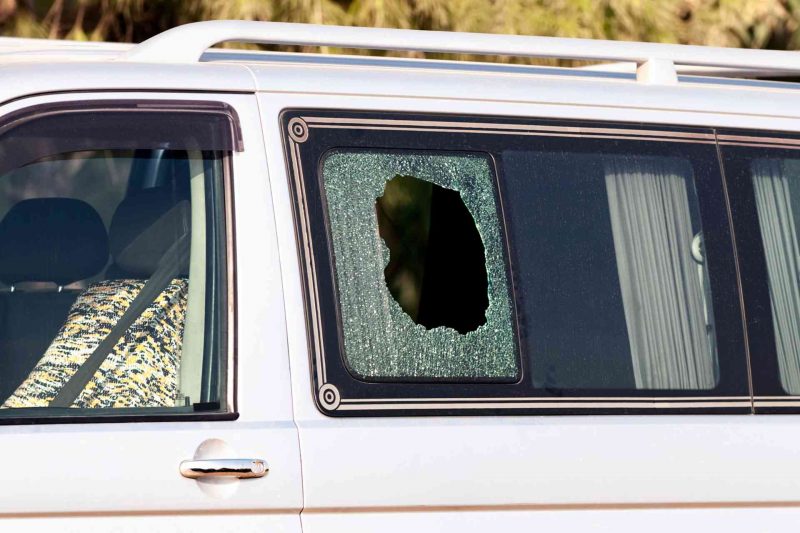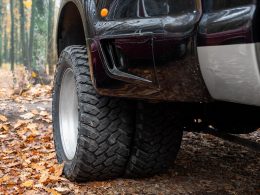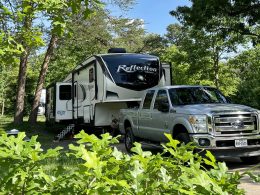Whether it’s ignorance, inexperience, or stupidity, mistakes are practically an inevitable component of RVing. The best you can do is try to minimize the impact of mistakes on your RV and bank account. While you may not be able to avoid all mistakes, you can certainly avoid the dumb ones.
Today, we’re sharing several dumb mistakes that could ruin your RV and throw a wrench in your future RVing adventures. Let’s dive in!

Are Dumb Mistakes Common When RVing?
Unfortunately, dumb mistakes are rather common when RVing. The entire RVing process can be a mixture of emotions and feelings. When you combine the excitement and nervousness of towing a big rig with the flurry of activity involved with hitching or unhitching an RV, bad things can happen.
Practically every RVer has a story of a dumb mistake they’ve made during their adventures. However, mistakes are opportunities to learn to be a better RVer! The key is not to make the same RVing mistake twice.
Can You Fix an RV Yourself?
You don’t have to own an RV for very long before you realize the importance of always having a few tools on hand and knowing how to use them. RVs are notorious for having issues.

To make matters worse, RV service centers can take weeks or months to fix even the smallest issues. Luckily, you can fix many RV issues yourself.
What you can fix if you have the right tools, patience, and access to YouTube might surprise you. However, be careful not to bite off more than you can chew. You can easily find yourself in over your head on a project and make the situation worse if you don’t know what you’re doing.
Dumb Mistakes That Could Ruin Your RV
There are some common dumb mistakes RVers make that can seriously damage an RV. If you’ve been RVing for any time, there’s even a chance you’ve committed one or two of these mistakes. Let’s take a look!
Neglecting RV Maintenance
One of the biggest mistakes you can make is putting off doing routine maintenance on your RV. Every RV has a recommended maintenance schedule in the owner’s manual. If you’re unsure of what maintenance you should do, this schedule is a great place to start.
If your RV didn’t come with an owner’s manual or you tossed it in the trash at some point, a simple Google search may do the trick.
Or, try calling your manufacturer or contacting them via social media. If anyone has a copy, they’ll be able to help point you in the right direction.
Not Checking Tire Pressure
You can’t just look at your tires and assume they’re good to go. You should check your tire pressure before every trip. Driving on tires over or under the recommended pressure can be dangerous.
Driving with improper tire pressure is one of the leading causes of tire blowouts in an RV. A single tire blowout can cause thousands of dollars in damage.
Occasionally tire blowouts cause serious accidents from drivers overcorrecting and losing control of their vehicles.
HOT TIP
Why China Bomb Tires May Ruin Your RV Vacation
Failing to Use a Checklist
So many tasks need to be done while RVing, some in a specific order. A checklist can help you avoid making a few critical mistakes while RVing.

Whether packing your campsite, setting up camp, or hitching and unhitching your trailer, you don’t want to skip a step. If you do, you could seriously damage your RV or injure yourself.
Driving Too Fast
We get it. You’re in a hurry to get to your campsite or get home. Isn’t everyone?
However, driving too fast while RVing is a recipe for disaster. Just because the speed limit is 70, 75, or over 80 miles per hour doesn’t mean you have to drive that fast. Your tires may not even be able to handle it.
Many tires used on RVs have much lower speed ratings than standard tires. As a result, many RVers typically never exceed 65 miles per hour.
This will not only help with your fuel economy but also reduce the chances of generating too much heat on your tires and reduce the distance necessary to stop during an emergency.
Rushing the Hitching Process
While you want to avoid most mistakes while RVing, rushing the hitching or unhitching process is one mistake you don’t want to make. It only takes seeing or hearing an RVer drop their trailer onto their truck or onto the ground to understand how dangerous rushing this process can be.
RVs are incredibly heavy, and dropping one can cause a tremendous amount of damage to them and the tow vehicle. If you or a loved one is near the RV when it falls, you could end up with a limb pinned under the weight of the RV. Not only will this be incredibly painful, but it could be tragic.
Not Knowing Your RV’s Height
When an RVer asks you your height, they’re likely not talking about your physical stature. They’re most likely inquiring about your RV.
Unless you’re cruising around in a lifted truck, you likely never have to worry about your height. However, you must be aware of your RVs height and the height of everything around you.
You don’t want to wait until you’re barreling toward a low-clearance bridge or structure to guess your RV’s height. You need to hitch up your RV and measure from the highest point of your RV to the ground.
If you enjoy having an air conditioner on top, you better know your RV’s height. Once you know, you can plug it into your RV’s GPS. These devices can help reduce your chances of running into a sticky low-clearance situation.
Packing Too Much Stuff
You may want to bring everything with you during your RVing adventures, but it can be extremely dangerous. RVs have a cargo-carrying capacity, and your tow vehicle can only handle so much weight.
You can do serious damage and even void warranties by exceeding either of these weight capacities.
Carrying too much weight can cause an unstable towing experience for the driver and reduced steering control. If you’re unsure if you have too much weight, drive your RV across a CAT scale so you have a better idea.
Avoid These Mistakes and Keep Your RV Safe
There’s no such thing as a perfect RVer. If you run into someone in a campground claiming to be the perfect RVer, be careful. Take any advice they give you with a grain of salt.
Do yourself a favor: pay attention and be aware of your surroundings while RVing. While mistakes are often a part of RVing, you can minimize them by paying attention to your actions.
Some of the most expensive mistakes RVers have made resulted from distractions. Stay focused, take your time, and enjoy every moment of your RVing adventures.
If You Want the Latest Travel News, Join Our Mailing List
Don’t rely on biased RV industry news sources to keep you informed. Stick with Nomadic News. We publish articles and breaking stories that matter to you every weekday.










